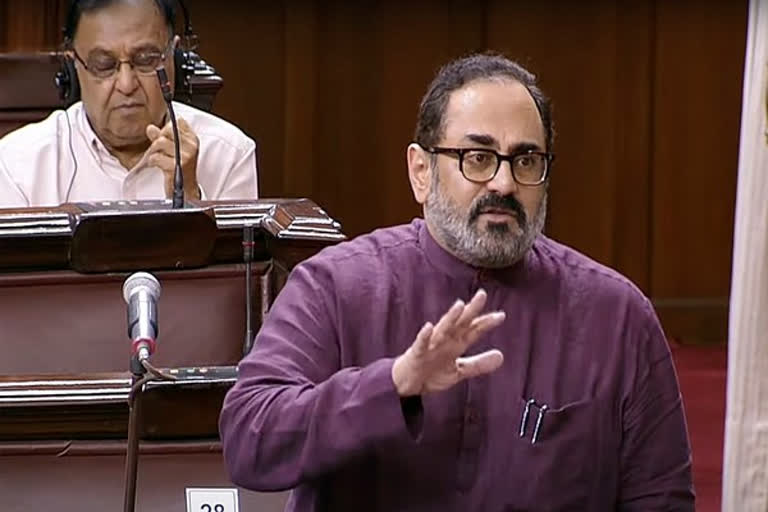New Delhi: IT Minister Rajeev Chandrasekhar on Saturday said the modalities defining the structure and scope of Grievance Appellate Committees will be worked out soon, and hoped that their formation will, in fact, discourage social media platforms from continuing with their "casual" and "tokenism" approach to address user grievances.
The government on Friday tightened IT rules, paving the way for the setting up of grievance appellate panels, which will settle issues that users may have against the way social media platforms initially addressed their complaints regarding content and other matters. The government says that the "broken" grievance redressal mechanism currently being offered by intermediaries (read social media platforms) and lakhs of messages flagging users' concerns around unresolved complaints had forced its hand.
"Grievance Appellate Committee will be an important institution in the coming days for internet and intermediaries. We will make an announcement about its structure, constitution, scope, and terms of reference," Chandrasekhar told reporters at a briefing. The details will be released soon, he promised. "It is our fond hope that intermediaries will do a better job of dealing with grievances at their level, so overflow on appellate process will be minimised," he said asserting that the casual approach adopted by platforms, so far, in dealing with complaints, had necessitated the latest move. This, despite social media norms of 2021 mandating appointment of grievance redressal officers by social media companies to look at user complaints.
"In good faith we thought that intermediaries, by appointing grievance redressal officers, will understand that grievance redressal officers are supposed to address grievances not have tokenism there...If some people have not understood that...so we are forced to have panels," the Minister said. As per the amended rules, each grievance appellate committee will consist of a chairperson and two whole-time members appointed by the central government, of which one will be a member ex-officio and two shall be independent members.
